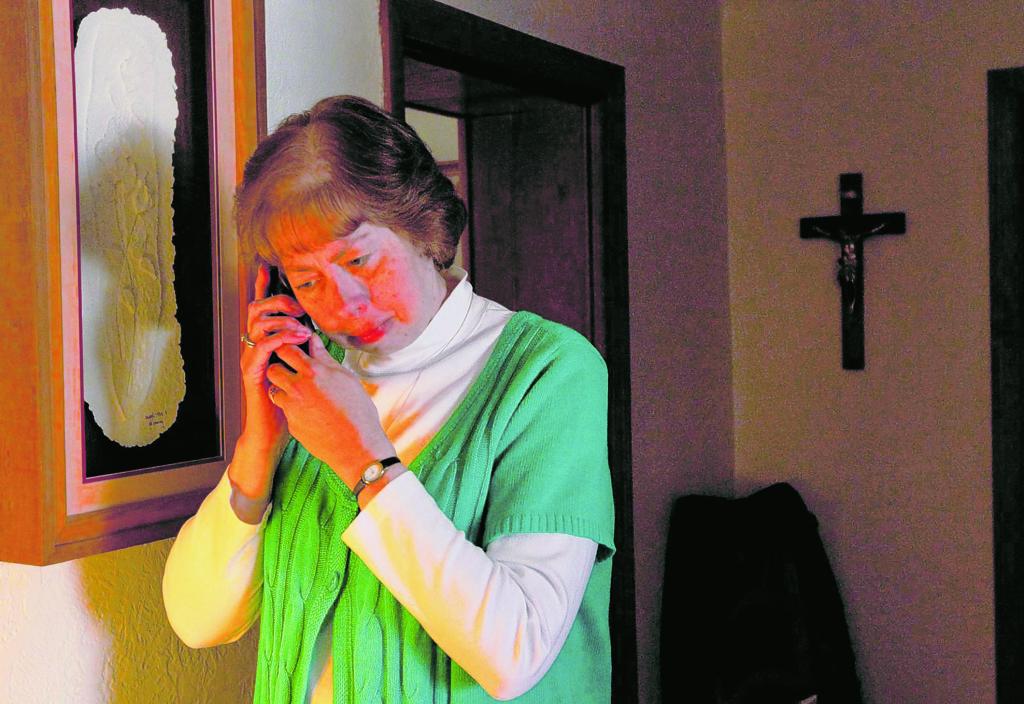ST. LOUIS — Mary Beth Erickson’s husband was not in court during their divorce proceedings in 1990. There was no testimony. She didn’t get to give her side of the story.
As a result, after the divorce was final, the Oakville, Mo., woman felt unsatisfied. Added to the pain of the separation itself was the feeling that something had been left unsaid.
Erickson wasn’t interested in remarrying yet, but she sought an annulment from the Catholic church anyway.
In court, “I didn’t have a chance to say what happened,” Erickson said. “The annulment offered me a way to do that and get past it. It was a form of healing.”
That healing was so profound for Erickson that the parish-center administrator at St. Francis Xavier (College) Church in St. Louis now volunteers as one of 250 advocates whom the archdiocese has trained to guide Catholics seeking annulments through the yearlong process.
“They’re sharing information that was so intimate in their lives with people they’ve never met with, and that’s really scary,” Erickson said. “You’re saying stuff you’ve never said to anyone.”
American Catholics are seeking annulments – the church’s declaration that a marriage was invalid – in large numbers. Whether, like Erickson, they’re hoping it helps them heal after a divorce, or allows them to get remarried in the church, annulments are in demand, and the church in the United States is granting them.
American Catholics make up about 6 percent of the global church, but according to the most recent Vatican statistics available, in 2006 the church in the United States granted 60 percent of the world’s annulments.
Pope Benedict XVI has indicated he believes that’s too many, and some Vatican watchers say the church may decrease the number of annulments granted to divorced Catholics.
In a January speech to the Roman Rota, the Vatican’s highest appellate court, Benedict reiterated the church’s teaching on invalidating marriages, emphasizing the need to balance “justice” and “charity.”
He also cautioned diocesan tribunals against letting the growing civil divorce rate dictate the number of annulments – called “decrees of nullity,” in church parlance – they grant.
Even after a Catholic couple gets a divorce, the church still considers the marriage valid. An annulment is a tribunal’s declaration that a marriage was never valid to begin with, that there was a hidden impediment or “defect of consent” that kept the marriage from being legitimate.
That declaration comes only after a long investigation that asks people to examine, in sometimes excruciating detail, the ups and downs of their marriage. The tribunal may conduct interviews with both parties, ask for details from friends and family members, search for documentary evidence of marital wrongdoing and order psychiatric evaluations.
Most Catholics who seek an annulment do so in order to remarry in the church. Divorced Catholics without an annulment who remarry outside the church are barred from receiving Holy Communion.
Benedict argued that the desire to be both remarried and able to receive the Eucharist should not come at the cost of the sacrament of marriage.
“Both justice and charity require love for truth, and essentially involve the search for what is true,” Benedict said. “Without truth, charity slides into sentimentalism. Love becomes an empty shell to be filled arbitrarily. This is the fatal risk of love in a culture without truth.”
Copy the Story Link
Send questions/comments to the editors.



Success. Please wait for the page to reload. If the page does not reload within 5 seconds, please refresh the page.
Enter your email and password to access comments.
Hi, to comment on stories you must . This profile is in addition to your subscription and website login.
Already have a commenting profile? .
Invalid username/password.
Please check your email to confirm and complete your registration.
Only subscribers are eligible to post comments. Please subscribe or login first for digital access. Here’s why.
Use the form below to reset your password. When you've submitted your account email, we will send an email with a reset code.